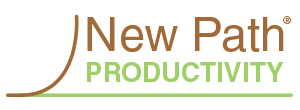|
[2.5 Minute Read or Listen Below] In a post almost two years ago, I confessed avoidance and fear of my weekly review. At the time, I celebrated the completion of an unprecedented streak of two consecutive reviews. Two weeks doesn't sound like an accomplishment, but it certainly was for me.
The purpose of my weekly review is to:
It is a very effective tool recommended by productivity icons like Stephen Covey and David Allen to prevent things from falling through the cracks. But because my task list overwhelmed me, I was doing a very selective weekly review, picking and choosing the pieces I wanted to look at and ignoring the rest. I called it my own personal "Ostrich Method." I buried my head in the sand and only selectively reviewed my task list, operating under the delusion the items I chose not to acknowledge didn't exist. I have now reached a milestone of 100 consecutive weeks conducting a complete and comprehensive weekly review, and I've learned three essential lessons. 1. Avoiding it makes it worse. We're all juggling a lot, both personally and professionally. By sticking to the habit of reviewing my tasks and my calendar weekly, I'm no longer overwhelmed by it. In addition, I'm no longer surprised by forgotten deadlines and appointments, and I don't experience as much frantic catch-up. I would love to believe not looking at a task on my list removes it from existence, but reality does not support this. Avoiding it comes back to bite you eventually. 2. Knowing is better than not knowing. As David Allen says, "Your mind is for having ideas, not holding them®." For most of us, life is incredibly complex, and there is no way to remember EVERYTHING in your head (or keep it on top of your desk). That's why a trusted system is a necessity. Your stress levels will plummet when you know how and where to find what you need. An effective system brings the right things to the forefront at just the right time. Doing my review every week lets me know what's on the horizon, and I can make intentional choices about how I spend my time. Knowing I have made conscious choices is very calming because I know nothing is lurking to surprise me. Now, don't get me wrong - sometimes things need to be reprioritized. But getting the big-picture overview every week keeps me in the know. 3. You don't need to do everything. I've been using my task/project management program since mid-2016. In early 2017, I started adding the date (MMDDYY) at the front of each entry. Adding the date lets me know how long an item has been in the system. This visual subtly forces me to confront how long I've been deferring something. It causes me to ask myself if I'm delaying because it isn't essential after all or if I'm procrastinating. If I decide it isn't essential, I delete it. If it's procrastination, I need to either do it or delete it - and be okay with my decision. As I said in January 2020, all tasks do not carry equal weight. We must make time to consistently and thoughtfully review our to-do lists, even if they seem scary. Our minds will only fixate on how overwhelming and long the lists are if we don't. Instead, focus on determining the essential items and work those into your schedule for completion. Avoidance is not a strategy. You can't determine the best use of your time without knowing your choices. "Your mind is for having ideas, not holding them." is a registered trademark of the David Allen Company.
0 Comments
Your comment will be posted after it is approved.
Leave a Reply. |
Kathy Muzik
|
New Path Productivity®, LLC provides worldwide virtual and Chicagoland onsite services for individuals and businesses to increase productivity
through organization and management of resources (e.g., energy, information, people, processes, space, and time).
through organization and management of resources (e.g., energy, information, people, processes, space, and time).
|
|
Phone847.748.0144
|
AddressPO Box 162
Highland Park, IL 60035 |
Privacy Policy Terms of Use
New Path Productivity®, LLC © 2015 - 2024 All Rights Reserved
New Path Productivity®, LLC © 2015 - 2024 All Rights Reserved



 RSS Feed
RSS Feed
